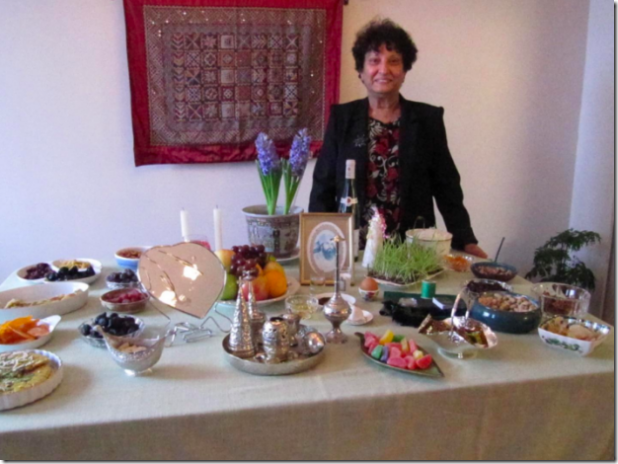Zoroastrian New Year NoRuz Observations Highlight Parliament Themes of Love and Inclusion
What started over 3000 years ago in Iran during the height of the great Achaemenian Zoroastrian kings— the celebration of the first day of spring — has now become a major festival of joy and love to herald the arrival of light, the rebirth of nature, and the renewal of life after the long, dark days of winter.
Article by Dolly Dastoor | Parliament of World’s Religions
The origins of the celebration lie in Zoroastrianism, in which the return of spring symbolized the triumph of good over evil. It is also the start of the Zoroastrian New Year, called NoRuZ, meaning “new day” (also variously known as Novruz, Nowrous, Nooruz, or Nauroz.).
NoRuz in 2018 is Tuesday, March 20 when the sun crosses the Vernal equinox in the Northern Hemisphere and Zoroastrians all over the world will mark this day as the official start of the Zoroastrian New Year.
In many places once part of the Persian Empire – including Afghanistan, Azerbaijan, India, Iran, Iraq, Kyrgyzstan, Kazakhstan, Pakistan, Tajikistan, Turkey, Turkmenistan and Uzbekistan – and across the world, over 190 million people will also celebrate this day. Over the last millennium, NoRuz has developed and expanded, incorporating new social and cultural influences as it is celebrated across cultures, religions, and national borders.
NoRuz is among only few occasions that can unite people of Persian origin cross-culturally during the festive days. It embodies the power of inclusion
Although the traditions and customs that mark celebrations of Nowruz vary by location, there are many unifying features:
-
People begin preparing days before the festivities begin with a spring cleaning of the home (a custom that may have originated from the Zoroastrian tradition!) and buying new clothes for all in the family.
-
On the day of NoRuz, there is much feasting, visiting family members and exchanging gifts between friends. Children receive special gifts as lavish food is prepared and sweet “sherbet” flows all the time! The power of love is palpable.
The beauty, meaning and symbolism of NoRuz is best experienced by laying out the traditional Haft Sheen Table (pictured above), on which a symbolic number of objects are placed which signify the passage of winter into spring. The seven (haft) items remind us of the seven attributes important to the Zoroastrian faith:
-
Spenta Mainyu of Wisdom, the power to generate good thoughts , good words and good deeds
-
Vohuman, The Good mind
-
Asha Vahishta, Ultimate truth and order
-
Kshatrya Vairya, benevolent Power of Good Governance
-
Spenta Armaiti, Devotion, zeal and desire to be industrious.
-
Haaurvatat, Incessant striving towards perfection.
-
Ameratat, Eternal bliss and immortality in this journey of life.
Traditions passed down through generations make the first day of spring an opportunity to enjoy ancient cultural customs and traditional songs, music, dancing, rituals, foods and storytelling. Moreover, NoRuz celebrations promote peace and solidarity within communities and strengthen deep rooted bonds of friendship and exchange.
…In recognition of the importance of this ancient rite/celebration, NoRuz was inscribed on UNESCO’s Representative List of the Intangible Cultural Heritage of Humanity in 2009. And in 2010, the United Nations General Assembly proclaimed 21 March International Nowruz Day.
NoRuz is a universal celebration for all humanity: a gift that transcends across national or ethnic boundaries with a message of peace, friendship and harmony. It is one way that Zoroastrians will fulfill the theme of the 2018 Parliament of the World’s Religions: “The Promise of Inclusion, The Power of Love.”


